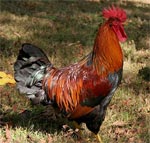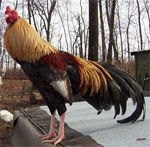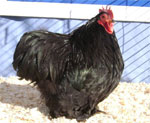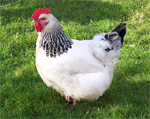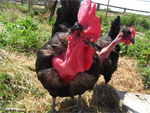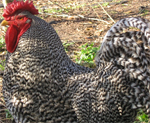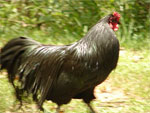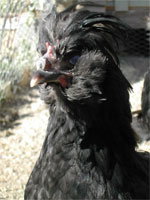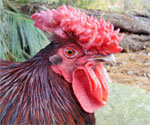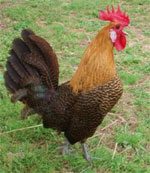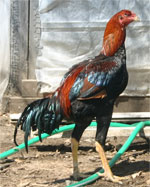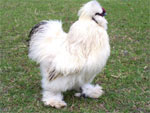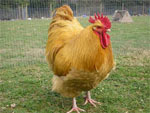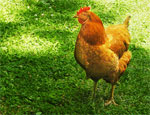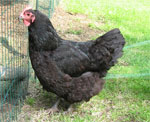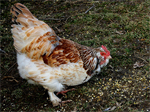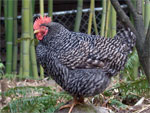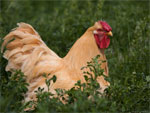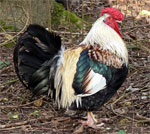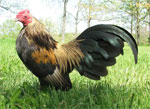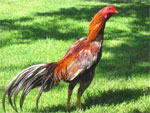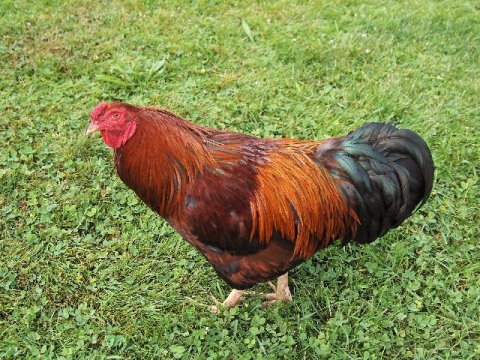
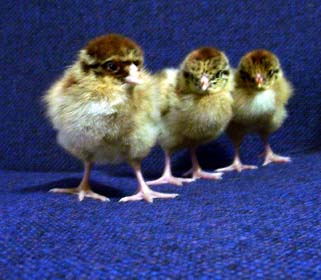
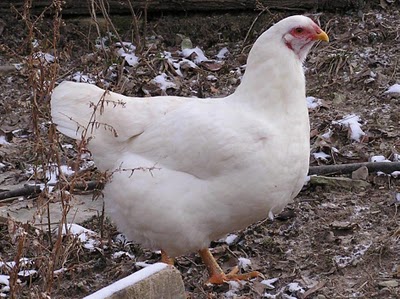
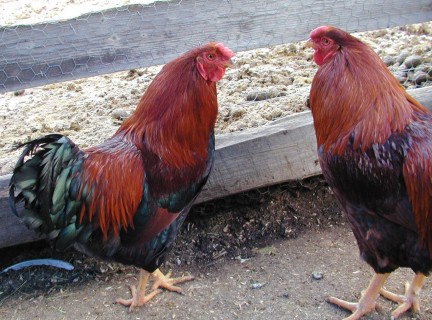
|
Chantecler Qualities
One of Canada's two native breeds, the Chantecler can really handle cold. Adversely, they have little tolerance to heat. Their breeding has produced a tight feathered plumage with a thick under layer of down. A dual-purpose chicken, the Chantecler lays four medium, brown eggs a week with a frame also suitable for good meat production. They mature quickly and lay consistently far into the cold months producing as many as 210 eggs a year. Although enjoying a resurgence in popularity, the Chantecler remains endangered and finding a source with available eggs or chicks may prove difficult.
Chantecler Temperament
Chanteclers reflect their environment. Hardy, rugged, and ready to face the cold, they prefer the outdoors to confinement. A little high strung, they will tolerate the coop but will grow temperamental when confined for long periods of time. Owners rate Chanteclers as non-aggressive toward humans. If handled early, they prove amenable to training. The hens have broody tendencies. However, once the eggs hatch, they make good mothers. As modern Chantecler flocks grow in number, a more detailed picture of the breed's qualities and temperament will emerge.
Chantecler Appearance
The Chantecler has developed along three basic plumages: white, buff, and partridge. They sport a small cushion comb and diminutive wattles purposefully introduced to the breed to avoid frostbite. A tall and meaty fowl with abundant plumage, the average Chantecler weighs seven or eight pounds. Plain, the white and buff plumed Chanteclers have little to recommend them as show birds and few breeders keep them for show. The partridge configuration has much more color and variety for the show floor but has only gained acceptance as part of the breed late in 1935.
Chantecler Upkeep
Only choose Chanteclers if you live in a cold climate with long winters. Feed them ad libidum with a high quality layer food that supplements the calcium and protein lost in their prodigious egg production. Give your Chanteclers plenty of room to roam and forage. Build a large coop with adequate space for the occasional times of confinement. Keep confinement times to a minimum. Breed and cull the rare Chanteclers carefully with the goal of increasing the breed's quality and numbers.
|




